Explore the evolution of digital marketing services from its inception in the 1990s. Today, it’s the era of AI-driven tactics. In 1994, the first banner ad got a 44% click-through rate (CTR). Digital marketing is now crucial for business success. The rise of technology and the internet has led companies to recognize the importance of having a strong online presence. But how effective is digital marketing? Let’s take a look at some evaluation statistics and proofs to understand its impact.
Introduction to Digital Marketing Services
Digital marketing has become the lifeblood of contemporary business strategies. In a world where online presence is paramount. Understanding and harnessing various digital marketing services are crucial for success. Let’s embark on a journey through the intricacies of digital marketing services. Exploring its types, strategies, and the key to selecting the right service provider.
What are the Types of Digital Marketing Services?
Digital marketing has become essential for any successful business today. It’s essential in today’s digital age. With the rise of technology and the internet, businesses are now able to reach a global audience. However, digital marketing is a broad term that encompasses various strategies and techniques. In this article, we will discuss the different types of digital marketing services. Businesses can use these services to enhance their online presence and drive growth.
1. Importance of Search Engine Optimization (SEO) Services in Digital Marketing
SEO is a crucial aspect of digital marketing services to rank businesses in search engines. By optimizing the website’s content and structure, businesses can increase their organic traffic. They can also attract more visitors and improve their online visibility. According to a study by HubSpot, companies that post blogs regularly receive 55% more website traffic. They also have 434% more indexed pages. SEO strategies include keyword research, on-page optimization, link building, and technical optimization.
2. Role of Pay-Per-Click Advertising (PPC) in Digital Marketing
PPC advertising involves placing ads on search engine result pages or websites. Advertisers pay a fee each time a user clicks on the ad. This type of advertising allows businesses to target specific keywords or demographics. It can provide instant visibility and results. Popular platforms for PPC advertising include Google Ads. Social media platforms like LinkedIn and Facebook are also popular for paid advertising.
3. Why Social Media Marketing is Important in Digital Marketing Services?:
Businesses can harness the power of social media marketing to build brand awareness. Social media marketing involves creating engaging and shareable content and interacting with followers. Social media marketing also includes running ads, and analyzing data to optimize campaigns. Facebook, Instagram, Twitter, LinkedIn, and YouTube are commonly used for social media marketing.
4. Content Marketing is King in Digital Marketing:
Content marketing focuses on creating and distributing valuable and relevant content. It’s helpful to attract and engage a target audience. This can include blog articles, videos, infographics, eBooks, podcasts, and more. By providing valuable content, businesses can establish themselves as industry experts. Content marketing helps business services to build trust with their target audiences. In digital marketing, content is king. It drives organic traffic growth to websites.
5. Email Marketing Role in Digital Marketing Services for Organic Lead Generation:
Email marketing involves sending targeted emails to a database of subscribers. It Helps to promote products, services, or engagement with customers. Businesses can use email marketing to build customer relationships, and drive sales. GMass and Mailchimp are examples of email marketing tools. Personalization, segmentation, and automation tools can enhance the effectiveness of email marketing campaigns.
6. Influencer Marketing Can be Help in Digital Marketing:
Influencer marketing uses popular social media figures to promote products and services. These individuals have large followings. By collaborating with relevant industry influencers, businesses can reach a wider audience. Influencer marketing helps to build trust among potential customers.
7. Affiliate Marketing in Digital Marketing Services
Affiliate marketing is a performance-based marketing strategy. Where businesses reward affiliates for each customer or sale generated through their efforts. Affiliates include bloggers, influencers, and websites. They promote products or services in exchange for a commission.
These are just a few examples of the types of digital marketing services available. Each type of service has a specific purpose. Marketing services can be utilized based on the business goals, target, and budget. Using these digital marketing strategies properly, businesses can effectively reach their target audience. It helps to drive traffic and increase their online presence.
What are the Comprehensive Strategies And Their Implementation For Digital Marketing Mastery?
Digital marketing has become an integral part of business growth and success. Research by Neil Patel shows that digital marketing methods generate 3 times the leads. These methods include social media marketing and email marketing. They cost 62% less than traditional marketing methods. The online presence of businesses is increasingly important. The digital landscape is constantly evolving. Therefore, businesses need comprehensive strategies to master digital marketing. Explore some of the key strategies and their implementation for digital marketing mastery.
1. Define Your Business Objectives:
The first step towards digital marketing mastery is to clearly define your objectives and goals. Whether it is to increase brand awareness, drive website traffic, or generate leads. Having well-defined objectives will help you to measure success.
2. Build a Strong Online Presence:
A strong online presence is crucial for digital marketing success. Start by creating a professional website that is visually appealing, and user-friendly. website should be optimized for search engines. Establish a presence on social media platforms that are relevant to your target audience. Start engaging with your audience through regular updates, valuable content, and interaction.
3. Content Marketing:
Content is king in the digital marketing world. Develop a content marketing strategy that focuses on creating and delivering valuable content. That should be relevant to the target industry or audience. Consistency in content creation attracts and retains a clearly defined audience. This can include blog posts, articles, videos, infographics, and more. Use search engine optimization (SEO) techniques to make your content visible and easy to find.
4. Social Media Marketing:
Social media has become a powerful tool for businesses to connect with audiences. Develop a social media marketing strategy that identifies the platforms of your target audience. Create compelling content that resonates with them. Utilize various social media tools and tactics to grow your following. Establish relationships with the target audience and drive website traffic.
5. Search engine optimization (SEO):
SEO plays a vital role in improving your website’s visibility and driving organic traffic. Conduct keyword research to identify the keywords and phrases your target audience is searching for. Start optimizing your website accordingly. Focus on on-page SEO factors to improve website visibility. Such as meta tags, headings, alt tags, and URL structure. As well as off-page SEO tactics such as link building and social signals.
6. Pay-per-click (PPC) advertising:
PPC advertising is a great way to drive immediate traffic to your website. Develop a PPC advertising strategy according to the target services. You should target relevant keywords and create compelling ad copy. Start optimizing landing pages using target keywords for maximum conversions. Continuously monitor and optimize your campaigns to ensure cost-effectiveness and maximize ROI.
7. Email marketing:
Despite the various digital marketing channels, email marketing is a highly effective strategy. Build an email list of interested prospects and existing customers. Then create personalized and engaging email campaigns to nurture leads and drive conversions. Implement email marketing automation tools to streamline your email marketing to enhance efficiency.
8. Growth Analytics and measurement:
Implementing comprehensive digital marketing strategies is not enough. You need to regularly measure, analyze, and monitor the performance of your campaigns. Leverage web analytics tools to track and measure key metrics. Regularly monitor traffic, engagement, conversion rates, and ROI for better data-driven decisions. Use these insights to refine your strategies, and continuously improve your digital marketing.
A report by PwC found that 45% of consumers are more likely to shop on sites that offer personalized recommendations. This shows the importance of customer engagement through digital marketing.
Mastering digital marketing requires a well-rounded and comprehensive approach. Defining objectives and building a strong online presence is not enough in today’s era. We implemented content marketing, SMO, SEO, and PPC advertising. You Should also use email marketing and analytics to improve continuously. Businesses can achieve business success and drive growth in today’s competitive digital landscape. So, take these strategies and implement them effectively. And embark on your journey to digital marketing mastery.
How to Craft Compelling Content in Digital Marketing?
Digital marketing relies heavily on creating compelling content. It must engage and attract the target audience. In a world where information overload is the norm. marketers must create content that stands out and captures attention. If you want to craft quality content, here are some essential tips to consider:
1. Understand Your Target Audience:
Take the time to research and analyze their demographics, preferences, and pain points. This will help you identify what type of content they are looking for and what will resonate with them the most.
2. Set Clear Goals and Objectives:
Before creating any content, it’s important to define your goals and objectives. Are you trying to increase brand awareness, generate leads, or drive conversions? Having clear goals will guide you in the content creation process. It ensures that every piece of content is aligned with your marketing objectives.
3. Create a Storytelling Strategy:
Storytelling is a powerful tool in digital marketing. It helps create an emotional connection with the audience and makes your content memorable. Develop storytelling strategies that align with the brand and incorporate your key messages. Use personal experiences and relatable examples to engage with the audience. This will hook them.
4. Focus on Adding Value:
Compelling content doesn’t just entertain; it adds value to the audience. Whether it’s educational, informative, or solves a problem. Your content should provide something meaningful to your target audience. This could be in the form of tips, tutorials, industry insights, or expert advice. Make sure your content is well-researched, accurate, and reliable.
5. Utilize Different Content Formats:
Digital marketing offers a wide range of content formats to choose from. Experiment with different formats. These include blog posts, videos, infographics, podcasts, webinars, and social media posts. Different people prefer consuming content in different ways. So diversifying your content formats will help to engage with a wider audience.
6. Optimize for Search Engines:
Crafting compelling content does not mean neglecting search engine optimization (SEO). Incorporate relevant keywords, and optimize headlines, meta descriptions, and alt tags. This will improve visibility on the search engine result page. This will ensure that your content reaches the right people at the right time.
7. Encourage Engagement and Interaction:
Compelling content invites engagement and interaction from the audience. Encourage your readers to leave comments, share their thoughts, and ask questions. Respond to comments and participate in conversations to build a community. This will enhance the user experience and increase the content visibility.
8. Measure and Refine Your Content Strategy:
To create compelling content consistently, you must measure its performance. It helps to make necessary adjustments. Use analytics tools to track key metrics. These include website traffic, engagement, page on-time, and conversion rates. This will help you to understand what content is working and what needs improvement. allowing you to optimize your content strategy over time.
Crafting compelling content in digital marketing requires a deep understanding of your audience. Set clear goals, storytelling expertise, and the ability to add value. Follow these tips and continuously refine your content strategy. A PR Newswire article shows companies with an active online presence are 2.8 times more likely to be seen as reputable by consumers. You can create content that grabs attention and resonates with your audience. Accordingly, this will drive results for your business.
What is Search Engine Optimization And Its Impact On Digital Marketing Success?
Search Engine Optimization (SEO) is a crucial aspect of digital marketing. Search Engine Optimization impacts a company’s success online. In today’s digital age, having a strong online presence is vital for any business. SEO is the key to achieving higher visibility in search engine rankings.
So, what exactly is SEO? Essentially, it involves optimizing a website’s content, structure, and overall design. It makes websites more attractive to search engines like Google. SEO aims to boost a website’s visibility in search engine results pages (SERPs). By strategically incorporating relevant keywords, improving website speed, and enhancing user experience. Also, by increasing backlinks.
The impact of SEO on digital marketing success can’t be overstated. Here are a few reasons why SEO is essential:
1. Increased Website Traffic:
Search engines are the primary source of website traffic for most businesses. By implementing effective SEO strategies, businesses can drive organic traffic to their websites. It helps increase the chances of attracting potential customers. Higher visibility in search engine rankings translates into more clicks and organic conversions.
2. Brand Credibility and Trust:
When a website ranks high in search engines, users tend to perceive it as more credible and trustworthy. SEO helps build credibility and improves brand perception. Users are more likely to trust websites that appear on the first page of search results. Establishing trust is crucial for long-term success and customer retention.
3. Cost-Effective Marketing:
SEO offers a cost-effective marketing solution compared to traditional methods. Traditional marketing methods are TV or print advertising that is not cost-effective. Once a website is optimized for search engines, the ongoing costs are relatively low. While initial efforts may require some investment. The long-term benefits of SEO make it a valuable investment for businesses of all sizes.
4. Targeted Traffic:
One of the significant advantages of SEO is the ability to target specific audiences. Businesses can attract visitors who are specifically searching for their products or services. This high-quality, targeted traffic has a higher chance of converting into customers. However, this results in SEO-increased sales and revenue.
5. Competitive Edge:
In today’s competitive digital era, businesses that neglect SEO risk being left behind. SEO helps businesses rank higher than their competitors in search engine results. Businesses can maintain visibility by staying updated with the latest SEO trends and strategies. This also helps them stay ahead of the game.
Search Engine Optimization(SEO) plays a vital role in digital marketing success. As digital marketing continues to evolve. Staying on top of SEO trends and adapting to search engine algorithms will be crucial. It will help businesses achieve and maintain online success.
How Social Media Strategies are helpful in Building Brands in the Digital Age?
Social media has become an integral part of our lives Today. Social media platforms have opened endless opportunities for individuals and brands. From personal connections to business promotions. One of the key aspects of leveraging social media is implementing effective strategies. which can contribute to building and expanding brands in the digital landscape.
Here are some ways social media strategies can help build brands in the digital age:
1. Increased Brand Awareness:
Social media platforms provide an excellent opportunity to reach a vast audience. They also increase brand visibility. Through strategic planning and execution, brands can create engaging and shareable content. That spreads like wildfire across social media networks. This increased exposure leads to greater brand recognition. Social media platforms raise awareness among potential customers.
2. Targeted Audience Engagement:
Social media allows brands to identify and target specific demographics. By creating tailored content and engagements for a particular audience. Brands can develop personalized strategies by analyzing user behavior and preferences. This will help the strategies resonate with their target market. This targeted approach enhances the brand’s relationships with its audience. This leads to increased loyalty and advocacy.
3. Enhanced Customer Experience:
Social media platforms are a valuable channel for brands. With its help, brands can interact with customers in real time. You can improve the customer experience by prioritizing customer engagement on social media. Brands can address queries, concerns, and feedback promptly using social media marketing. Because every customer’s opinion matters. This active engagement fosters a positive brand image. It builds trust and loyalty among customers.
4. Brand Authenticity and Personality:
Social media platforms offer brands an opportunity to showcase their unique personalities. It helps brands connect with customers on a more personal level. Brands can create an emotional connection with their audience. They do this by sharing authentic and relatable content. This authenticity humanizes the brand, making it more approachable and relatable. ultimately leading to stronger brand positioning.
5. Effective Lead Generation and Conversion:
Social media strategies can drive traffic to a brand’s website and generate leads. Brands can encourage users to take desired actions. For example, strategically place call-to-action buttons, optimize landing pages, and use persuasive content. This can include making a purchase or signing up for a newsletter. Social media also allows for retargeting marketing. Ensuring that potential customers are consistently engaged and guided through the conversion funnel.
6. Insights and Analytics:
Social media platforms provide extensive data and analytics. Brands can measure the effectiveness of their strategies and make informed decisions. By monitoring key performance indicators, brands can identify trends and track engagement. Brands can gain valuable insights into customer preferences with data analytics. These analytics enable brands to refine their strategies. They also help brands optimize their social media presence for maximum impact.
How Leveraging Data Can Enhance Decision-making Processes In Digital Marketing Campaigns?
In today’s digital age, data is king. The vast amount of information available at our fingertips helps businesses make more informed decisions. Using data has become crucial to improve their marketing campaign decision-making. Here’s how:
1. Collecting Relevant Data:
The first step in using data for digital marketing campaigns is to collect relevant data. This can be done through various sources. Such as website analytics, social media insights, customer surveys, and market research. Marketers can gather data from these sources. This helps them gain valuable insights into consumer behavior.
2. Analyzing Data:
Once the data has been collected, it needs to be analyzed to identify patterns and trends. This can be done using data analysis tools and techniques. There are various techniques, such as data mining, predictive modeling, and statistical analysis. By examining the data, marketers can uncover valuable insights. That can help them improve their decision-making process.
3. Personalizing Campaigns:
Leveraging data in digital marketing is the ability to personalize campaigns. By analyzing customer data, marketers can create targeted and personalized content. That resonates with their target audience. This can lead to higher engagement, conversion rates, and customer loyalty.
4. Optimizing Campaign Performance:
Data analysis can also help marketers optimize their campaigns for better performance. Marketers can identify areas of improvement by tracking key performance indicators (KPIs). Examples of KPIs include click-through rates, conversion rates, and return on investment (ROI). This helps them make data-driven decisions to optimize their campaigns. This can result in better ROI and overall campaign success.
5. Predicting Future Trends:
Leveraging data has a benefit: it allows predicting future trends and market movements. Marketers can analyze historical data to anticipate customer preferences. They can also analyze it to anticipate market trends and competitor strategies. This allows them to stay one step ahead of the competition. They can adapt their campaigns accordingly.
6. Improving Customer Experience:
Data can also be used to enhance the customer experience. Marketers can analyze customer data. It provides insights into customer preferences, needs, and pain points. This information can then be used to tailor marketing messages, offers, and experiences. It helps to meet the specific needs of individual customers.
This improves customer satisfaction. It also increases the chances of repeat purchases and customer loyalty. According to Forbes, 57% of internet users say they won’t recommend a business with a poorly designed mobile site.
Leveraging data is essential in enhancing the decision-making process in digital marketing campaigns. Marketers can make more informed decisions, personalize campaigns, and optimize performance. They do this by collecting, analyzing, and utilizing relevant data. They can also predict future trends and improve the overall customer experience. In today’s data-driven world, businesses that don’t use data are at a big disadvantage. So, embrace the power of data and take your digital marketing campaigns to new heights.
How to Select the Best Digital Marketing Service Provider in 2024?
The world of digital marketing is constantly evolving. So, it can be challenging to stay ahead of the curve. That’s why many businesses turn to digital marketing service providers. They help them navigate the ever-changing landscape and achieve their marketing goals. But with so many options out there, how do you select the best digital marketing services provider in 2024? Here are a few key factors to consider:
1. Track Record of Success
When selecting a digital marketing service provider, their track record of success is crucial. Look for a provider that has a proven track record of delivering results for their clients. Ask for case studies or examples of past campaigns they have worked on. Check what the outcomes they achieved. This will give you an idea of their ability to drive real, measurable results.
2. Range of Services
Digital marketing encompasses a wide range of strategies and tactics, from SEO and content marketing to social media advertising and email marketing. When choosing a digital marketing service provider, look for one that offers a wide range of digital marketing services. This will help to meet your specific needs. This will save you time and effort. You can work with a single provider for all your digital marketing needs.
3. Industry Expertise
It’s also crucial to consider the provider’s industry expertise. Every industry has its nuances and unique challenges. When it comes to digital marketing services. A provider with experience working with businesses in your industry will understand your target audience better. They will also better understand your competitors and market trends. They will also be able to tailor their strategies and tactics to align with your industry’s specific needs.
4. Transparent Reporting and Communication
Transparent reporting and communication are essential. This is especially true when working with a digital marketing service provider. You want regular updates on your campaigns. You need open communication to address any questions or concerns. Look for a provider that provides clear, concise reporting. Make sure the provider is responsive to your needs.
5. Innovative Approach
The digital marketing landscape is constantly evolving. New technologies and trends emerge all the time. Look for a digital marketing services provider that demonstrates an innovative approach. They should stay ahead of the curve. They should be proactive in their strategies and continually adapt to the changing digital landscape. It will help to ensure your marketing efforts are at the forefront of industry trends.
6. Customization and Flexibility
Every business is unique, with its own goals, target audience, and budget. When selecting a digital marketing service provider, look for one that offers customization and flexibility in their approach. They should be willing to work closely with you. They should understand your specific needs and tailor their strategies accordingly. Avoid providers that offer a one-size-fits-all approach. This may not align with your business objectives.
In 2024, choose a digital marketing service provider based on their track record of success. Also, consider their range of services and industry expertise. Their transparent reporting and communication. Also, consider their innovative approach, customization, and flexibility. By considering these factors, you’ll be on your way to finding a provider. They can help you navigate the ever-changing digital marketing landscape. They can also help you achieve your marketing goals in the years to come.
Conclusion
The world of digital marketing is constantly evolving. Understanding the various services and strategies can seem overwhelming. However, We have discussed the importance of each digital marketing service. We provided valuable insights and tips to help you succeed in implementing them.
This guide has one key takeaway: the importance of staying updated with the latest trends and techniques. The digital landscape is constantly evolving. What worked yesterday might not work tomorrow. You can stay ahead of the curve by consistently educating yourself and adapting your strategies. You can achieve your marketing goals.
In conclusion, digital marketing offers many opportunities for businesses. They can reach and engage their target audience. This guide discusses various services and strategies. If you incorporate them, you can build a strong online presence, increase brand awareness, and drive meaningful results. Remember to adapt, experiment, and stay informed. This will help you stay ahead in this ever-changing landscape. Happy marketing!
Welcome to TrafficTonic – your ultimate source for cutting-edge insights in digital marketing and search engines. Stay ahead of the curve with our timely updates, expert analyses, and actionable strategies. Elevate your online presence and drive success in the digital realm with TrafficTonic. Where innovation meets impact!


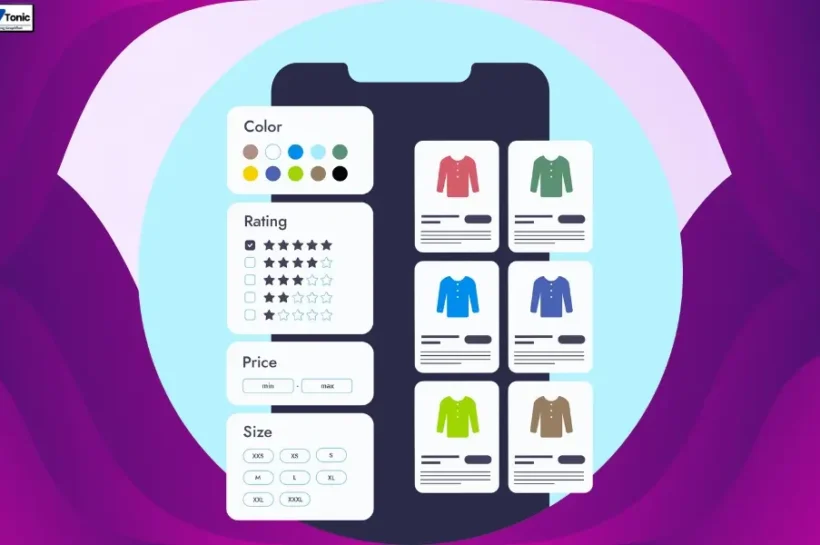




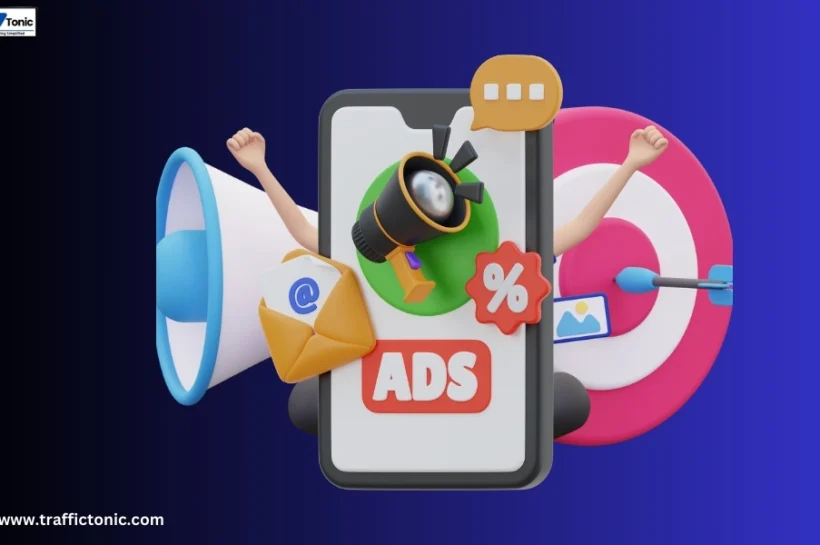
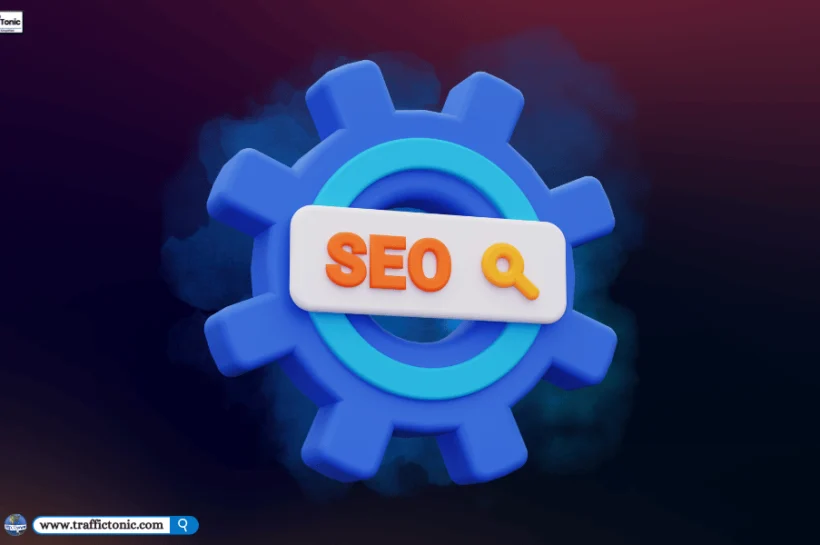



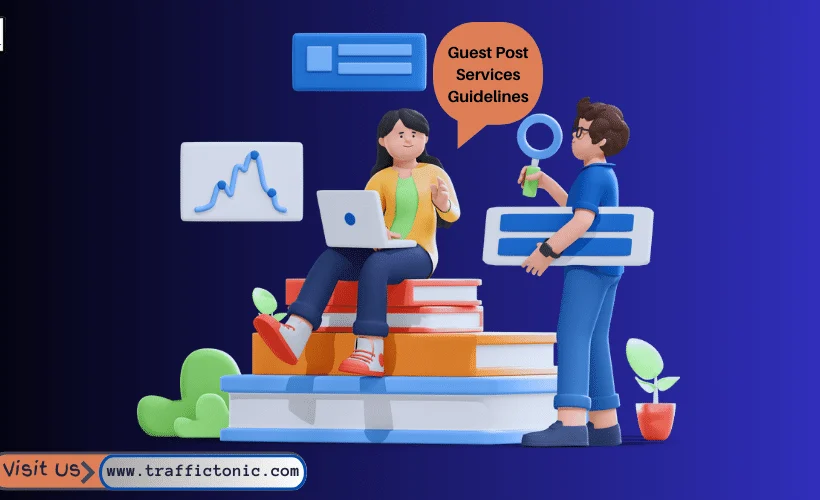
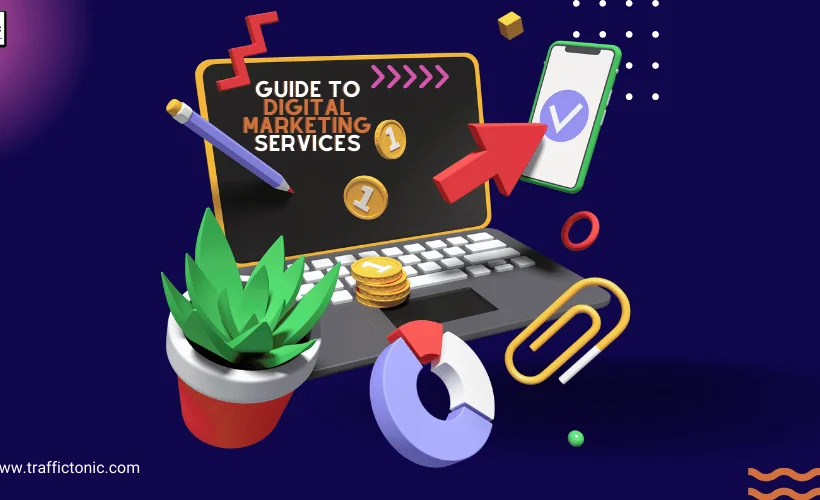
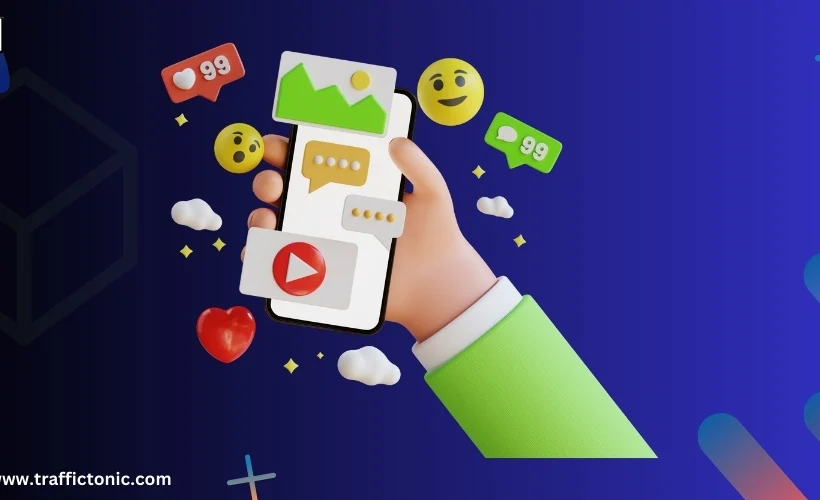
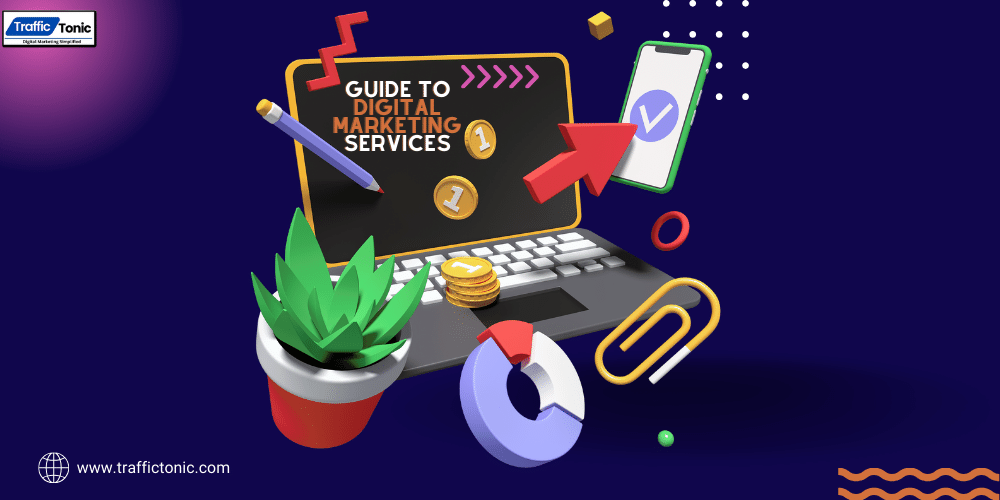
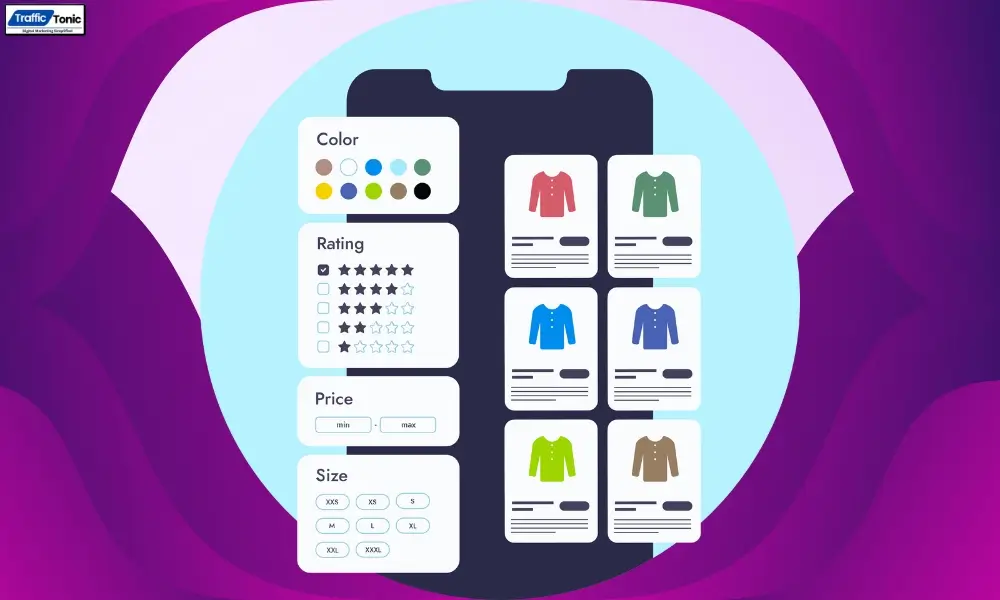


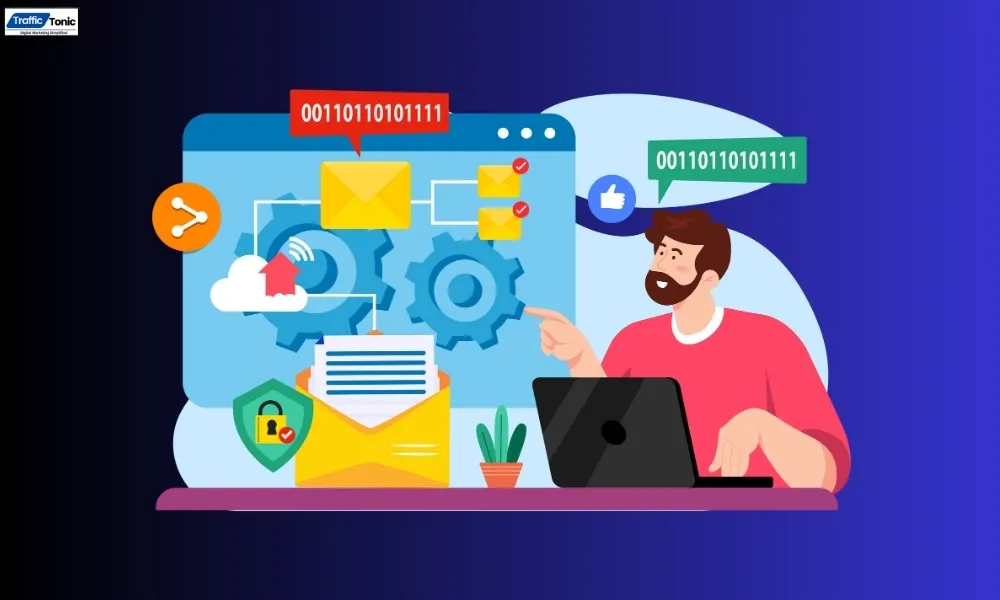
Great insights on digital marketing services and trends! I’m excited to implement these strategies to improve my site’s rankings.
I love the way you broke down the importance of digital marketing services. It’s such a crucial part of any SEO strategy.
I don’t think the title of your article matches the content lol. Just kidding, mainly because I had some doubts after reading the article.
Thanks for the tips on Digital Marketing Services. I’m always looking for new ways to captivate my audience.
This article on digital marketing services is fantastic! I’ve been struggling with engagement, and these tips are very helpful.
I appreciate the detailed explanation of digital marketing services. It’s a complex topic, but you made it easy to understand.
Digital marketing services is key to driving traffic. Your tips on digital marketing and creating valuable content are spot on.
I’ve been looking for ways to improve my website’s digital marketing. Your suggestions are very practical and easy to implement.
The importance of mobile optimization can’t be overstated. Thanks for the reminders and tips!
Excellent breakdown of digital marketing services. Looking forward to applying these techniques!
Can you be more specific about the content of your article? After reading it, I still have some doubts. Hope you can help me.
The tips on digital marketing services were spot-on. Can’t wait to see the results!
Great post on digital marketing services! The strategies outlined are very practical.
This article offers a fresh perspective on digital marketing. Well done!
The insights on digital marketing services are incredibly valuable. Thanks for sharing!
Loved the detailed analysis on digital marketing services. This will definitely help in our next campaign.
Your guide on website optimization is a must-read for anyone in digital marketing services!
Great tips on digital marketing services. I’ll be using these strategies moving forward.
The breakdown of digital marketing services metrics was very informative. Thanks for the clarity!
Your post on digital marketing services optimization is packed with actionable advice. Excellent work!
Fantastic content on digital marketing services. The examples you provided are very insightful.
The digital marketing services tips you shared are going to make a big difference for our site. Thanks!
Loved the focus on data analytics in digital marketing. Very informative!
Thanks for sharing. I read many of your blog posts, cool, your blog is very good.
Your content on digital marketing services is incredibly useful. I’ve bookmarked it!
Great advice on building an effective digital marketing strategy. Looking forward to applying it!
The case studies you included really bring the strategies to life. Well done
This post has given me a lot of ideas for improving our digital marketing presence.
Thanks for the detailed guide on digital marketing services. It’s exactly what we needed!
The insights on digital marketing services for 2024 are spot on. Excited to see these changes!
Great content on improving online visibility. Your tips are practical and actionable.
Loved the practical approach to digital marketing in your post. It’s exactly what we need!
The information on digital marketing strategies was very enlightening. Thanks for sharing!
Your insights into digital marketing are very timely. We’ll be updating our strategy accordingly!
Great overview of digital marketing best practices. Your advice is always on point!
Thanks for the tips on digital marketing services, it will be helpful in building a strong online brand. They’re going to be very useful for us!